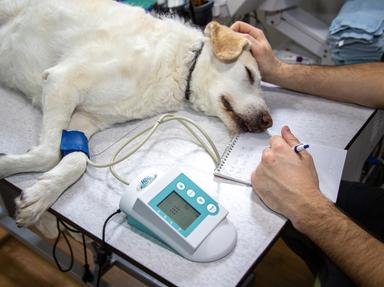Quiz Answer Key and Fun Facts
1. I check my dog's stool in the yard every day and do not see any worms. Therefore, he does not have intestinal parasites.
2. Which of the following is NOT a vaccine against a canine disease?
3. Of the following, which is the BEST way to keep my dog's teeth and gums healthy?
4. My dog has an ear infection. What is the best treatment?
5. Which breed is known for its dark purple tongue?
6. My dog only goes out for walks in the yard, so he doesn't need to be on a heartworm preventative.
7. My housebroken dog is suddenly urinating in the house. What could this mean?
8. My dog scoots his rear on the floor everyday after going to the bathroom. This is just a silly behavior problem.
9. What is the best way to treat an older dog's achy joints?
10. At the time of writing this quiz (2007), in the USA, when is the usual time to spay or neuter your dog?
Source: Author
lesleyrose
This quiz was reviewed by FunTrivia editor
crisw before going online.
Any errors found in FunTrivia content are routinely corrected through our feedback system.

